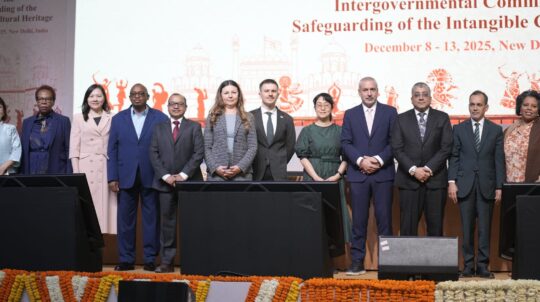The MCSC welcomes the decision of the Reggia di Caserta administration in Italy to withdraw the permit for the concert of russian conductor and propagandist valery gergiev, which was scheduled for July 27 as part of the “Un’Estate da Re” (A Royal Summer) festival.
The Reggia di Caserta is a state cultural institution under the Ministry of Culture of Italy. The position of the Italian government and the Minister of Culture Alessandro Giuli was crucial in resolving the situation.
“The free and unquestionable decision made by the management of the Reggia di Caserta finds my full and confident support: despite the artistic quality of the event, the cancellation of the concert conducted by Maestro Gergiev, also in light of an overtaking partisan ideological exploitation, obeys a logic of common sense and moral tension aimed at protecting the values of the free world”, said the Minister of Culture of Italy Alessandro Giuli.
The MCSC expresses its gratitude to Alessandro Giuli for his clear and consistent position, which he had also expressed during a meeting with Mykola Tochytskyi in Rome. Thanks to his support, the event did not turn into an endorsement of a representative of a regime waging an aggressive war against Ukraine.
The Ukrainian community in Italy, artists, human rights defenders, representatives of the cultural sector, and dozens of organizations from around the world also played an important role. Their public appeals to the festival organizers helped stop the concert. This result was made possible by unity, international solidarity, and public pressure.
The MCSC stresses: art cannot be separated from ethical and political responsibility during wartime. valery gergiev is not a neutral artist. He represents an aggressor state, supported the illegal annexation of Crimea, praised russian military actions in Syria, and refused to condemn russia’s full-scale invasion of Ukraine.
The MCSC is grateful to the Italian government for its attention to this issue and calls on other European countries to follow a consistent policy of cultural responsibility in times of war.

